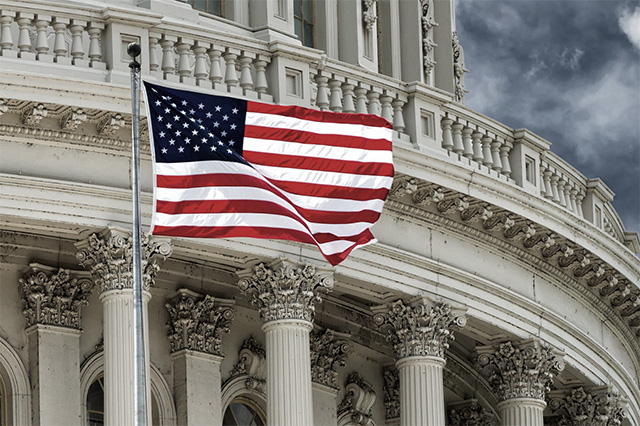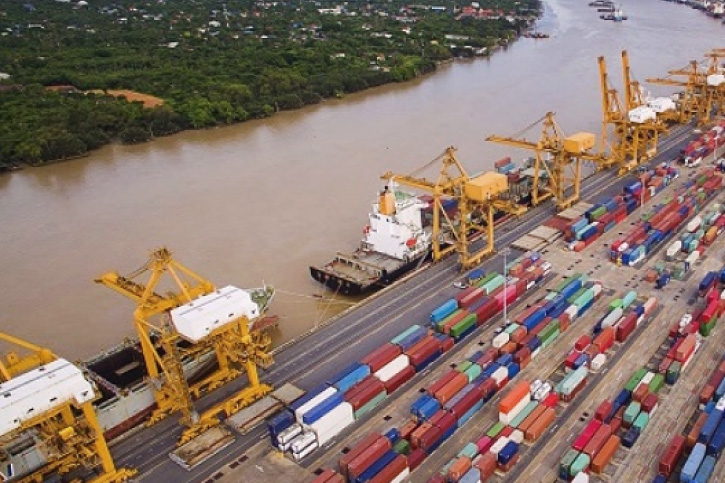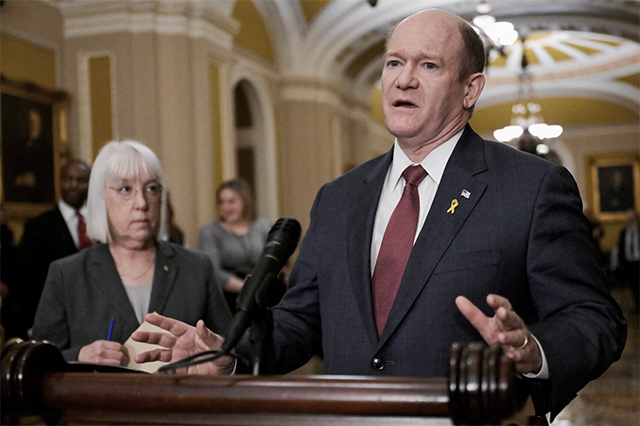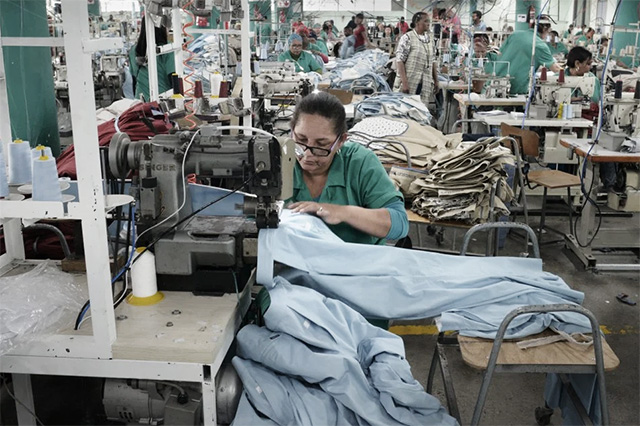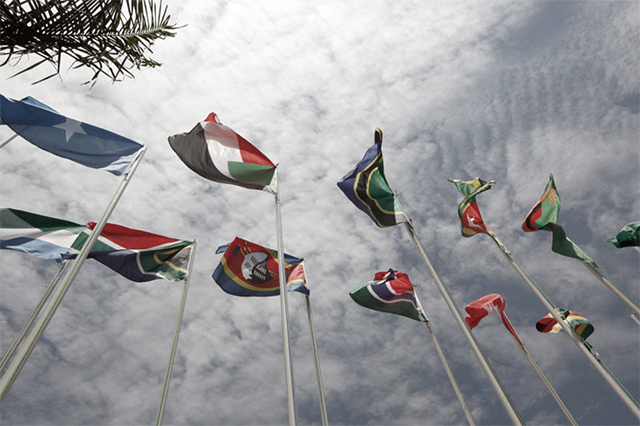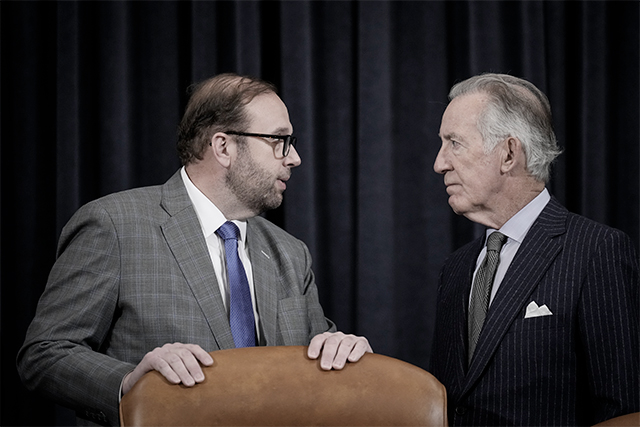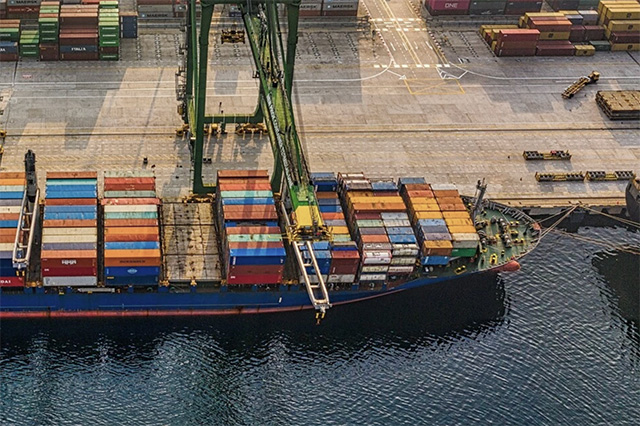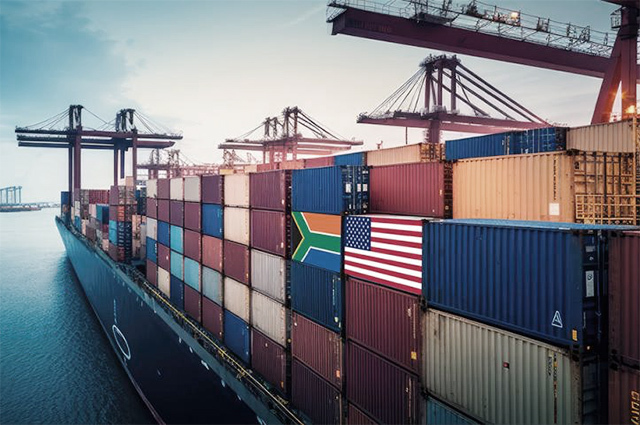How can the US and Africa build on AGOA to boost trade relations?
The Africa Growth and Opportunity Act (AGOA) is unilateral and non-reciprocal US legislation that aims to promote trans-border trade between the US and African nations. It enables the US to give preferential trade benefits to African countries that satisfy eligibility requirements: these include social, political and economic governance targets.
In 2019, however, the emergence of the African Continental Free Trade Area (AfCFTA) created uncertainties over the renewal of AGOA, which expires in 2025.
Some observers suggested that instead of renewing AGOA, the US should use the AfCFTA as a framework for conversations with African nations about establishing a new strategic economic partnership.
But the dominant voice in support of AGOA prevailed and the legislation seems set to be renewed.
Who benefits?
Assuming that AGOA is renewed, AGOA-eligible AfCFTA member nations will continue to exploit its benefits – and can also enter into bilateral and regional agreements without infringing upon their rights and duties under the AfCFTA.
Still, AGOA opponents from both the US and Africa claim that it benefits neither the US nor Africa. On the US side, some US producers oppose it on the grounds that it encourages dumping and competition from imported goods that they say are low-quality. They claim that imported products should be subject to sound labour, environmental and product quality standards. Consequently, US producers lobbied to prevent importation of some goods, including sugar.
On the African side, some claim that AGOA exports are dominated by primary goods in the extractive industries and low-skill services industries. They assert that such a non-diversified sector focus undermines the ability of AfCFTA member nations to strengthen the capacity of small and medium enterprises (SMEs) to manufacture finished products.
AGOA proponents, meanwhile, claim that it has benefited both the US and Africa. On the US side, AGOA eligibility requirements are a way to induce African nations to adopt its own form of democratic values. On the African side, it allows eligible countries to boost trade, economic growth and development, including increasing investments and US foreign exchange earnings through access to US markets. In 2022, US AGOA imports increased by 57% to $9.4bn, from $6bn in 2021. AGOA products include oil, apparel, footwear, wine, certain motor vehicle components, some agricultural products, steel and chemicals.
The US government currently designates 14 of the 54 AfCFTA member nations as non-AGOA-eligible and non-beneficiary countries; 35 of the 54 AfCFTA nations are eligible for AGOA benefits. The legislation grants eligible nations duty-free access to markets and economies worth $25 trillion, including over 1800 products. Under AGOA apparel exports from Africa to the US also increased by about 16% from $1.2bn in 2019 to $1.4bn in 2021. In 2022 the US was the largest market for the $1.42bn in annual apparel exports under AGOA from African nations. But comparatively, the African export figures for all AGOA-eligible African nations combined were only 5% of the $36.5bn apparel exports from China to the US during the same year.
Room for improvement in a shifting landscape
There is therefore still room for improvement, and the time is ripe for the US and Africa to take proactive measures. AGOA legislation must continue to strengthen the ability of eligible AfCFTA member nations to fully exploit its benefits. It must help them to achieve AfCFTA economic integration, build SME capacity and achieve wealth creation goals.
The planned 2025 AGOA renewal will occur at a time when the US and Africa are witnessing emerging and competing global geopolitical and geoeconomic interests and landscapes. The emerging and increasing economic strength of AfCFTA and the BRICS bloc led by Brazil, Russia, India, China and South Africa continues to shift the geoeconomic and geopolitical interests and landscape from a unipolar world dominated by the US to a multipolar world that strengthens the bargaining power and leverage of emerging market nations of Africa.
In March 2023 some countries, including BRICS members China and India, launched separate projects to de-dollarise trade with various countries including the African nations Tanzania, Kenya and Uganda.
Beyond de-dollarisation, in the medium and long term the BRICs countries are planning to strengthen their geoeconomic dominance through an EU-like common currency. The trade bloc has also become very popular among emerging markets, with six geo-economically strategic countries – Saudi Arabia, Argentina, Ethiopia, Egypt, United Arab Emirates and Iran – joining it in August 2023 and over 20 more countries seeking to join.
Turning challenges into opportunities
Consequently, the economic and political stakes are high for the US to maintain its past geopolitical and geoeconomic dominance. China, Russia and India are not demanding AGOA-type governance conditions for trading and investment opportunities with Africa. But, regardless of the increasing influence of such players, the US must take proactive and dynamic measures to reshape its trade relations, based on non-zero-sum mutual interest. It must enter into additional trade instruments with African nations, and pass the AfCFTA billthat would direct the US trade representative to develop a 10-year federal strategy to promote the free trade area. It must enter into free trade agreements (FTAs) that practicalise joint ventures with African SMEs aimed at strengthening their manufacturing and production capacity.
The US must also be sensitive to the unintended negative impact of some of the well-intentioned retaliatory trade measures on the populations of AGOA-eligible nations. The Trump administration suspended Rwanda’s AGOA eligibility to export textiles to the US and took retaliatory measures against the country for banning the US from exporting second-hand clothes into Rwanda. In January 2022, citing violation of AGOA legislation, US President Biden also denied AGOA preferential treatment to Ethiopia, Mali and Guinea. Such AGOA suspensions may be well-intentioned and seek to goad countries to adopt US values of good governance – but they have unintended negative impacts, including undermining employment and economic stability.
Similarly, the US must also relax some of the AGOA governance eligibility requirements and must also provide technical, logistics and capacity-building support to female- and youth-owned SME traders in eligible African nations. AGOA-eligible countries do not have a carte blanche to export eligible goods to the US; they must also meet some additional product quality standards.
To strengthen such quality and competitiveness, the US imposes non-tariff measures, including sanitary and phytosanitary barriers and standards, on imports from eligible African nations. The imposition of such standards is well-meaning, intended to safeguard consumer safety. However, it also limits the ability of SMEs in the eligible countries to export goods to the US. One end result is a reduction of the quantity of goods exported to the US and an inability fully to exploit AGOA benefits. Support will enable African nations to strengthen product competitiveness and to improve the quality and quality of goods exported to the US under AGOA.
The economic and political stakes are high for African nations. They must use the available competing trading opportunities and interests as bargaining chips in trade deals.
African countries must help themselves
In implementing their AGOA benefits, they cannot rely solely on US capacity-building support, but must help themselves. Evidently, being AGOA-eligible does not guarantee that they will fully exploit AGOA benefits and achieve their AfCFTA goals. In order to benefit from such US support, eligible African nations must first take proactive measures to overcome energy, infrastructure, institutional and policy challenges that undermine the manufacturing and productive capacity of local SMEs. They must provide affordable and reliable energy and infrastructure to enterprises. They must also create an enabling policy climate to attract foreign investments and joint ventures with their local SMEs.
Particularly, they must ensure that access to AGOA benefits includes a broader spectrum of diversified sectors, demographic groups and geographic regions of AfCFTA member nations.
In 2021 imports into the US under AGOA were mainly in primary products and services. The products include crude oil ($1.7bn); apparel ($1.4bn); transport equipment ($949m); minerals and metals ($897m) and agricultural products ($715m). The majority of the AGOA benefits go to the top five exporters to the US: South Africa with $2.7bn worth of goods, mainly vehicles, parts, ferroalloys and jewellery; Nigeria with $1.4bn worth of goods, mostly crude oil; Kenya with $517m worth, mostly apparel, macadamia nuts and fresh flowers; Ghana with $324m worth, including crude oil, cocoa and cassava; and Angola with $300m worth, entirely crude oil. Nigeria is the largest oil exporter and South Africa is the highest non-oil exporter and has the most diversified products, ranging from passenger vehicles and yachts to frozen sorbet and citrus fruits.
The negative consequences of trading in non-diversified primary products and of concentration in limited geographic regions are that AGOA-eligible countries are unable to strengthen their local female- and youth-owned SMEs to manufacture and trade in African value-added finished products.
AGOA-eligible member nations of AfCFTA must therefore go beyond exporting a narrow spectrum of primary products in a saturated textile market and low-skill services industries.
Advantages of FTAs
Regardless of AGOA benefits, AfCFTA member nations should also seek opportunities to enter into FTAs with the US. They must also capitalise and expand on additional opportunities to use FTAs to strengthen local SME manufacturing and production capacity. They should create and implement an enabling environment to attract joint ventures with developed-economy companies, to strengthen such local capacity.
Unlike AGOA, a free trade agreement with the US is a binding bilateral trade and investment treaty that will provide signatories with equal opportunity and discretion to enter into mutually beneficial agreements that strengthen their regional comparative advantage and local manufacturing capacity.
So far, Morocco is the only African nation that has entered into an FTA with the US. But assuming the Biden administration renews the 1974 US Trade Promotion Authority – which expired in July 2021 – Kenya will negotiate its FTA with the US and other nations will continue to explore possibilities for negotiating similar agreements.
Finally, assuming AGOA is renewed as expected in 2025, the legislation will remain a useful tool for strengthening US-Africa trade relations. Undisputedly, there is room for more improvement on both the US and African sides: but the legislation has benefited both sides. It has boosted trade exports, created some wealth and strengthened economic development of eligible AGOA members who are also members of the AfCFTA.
The US has also used the legislation as a tool for safeguarding geopolitical, geoeconomic and national security interests. The shifting global geopolitical and geoeconomic interests and competitive playing field are increasing the economic and political stakes for relations between the US and Africa and are creating opportunities to turn the challenges we have described into opportunities to enter into more symmetrical trade relations. But it is still too early to predict the exact scope of impact of shifting interests and players on the proposed AGOA 2025.
The US and Africa must take proactive measures to capitalise on their respective comparative advantages and shared history to reshape and build strong trade alliances that are based on a more symmetrical relationship of mutual gain and mutual respect.



